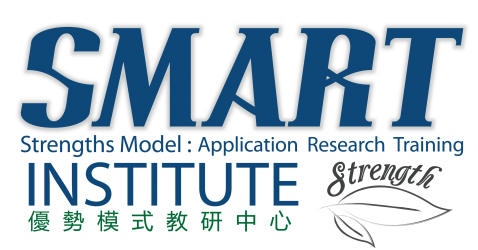Video
The Strengths Model: An Introduction
Dr. Rick Goscha’s message to strengths model case worker
Professor Samson Tse message to strengths model case worker
SMCM Tools
Fidelity Review: Please contact SMCM team at HKU
Reference
Björkman, T., Hansson, L., & Sandlund, M. (2002). Outcome of case management based on the strengths model compared to standard care. A randomised controlled trial. Social Psychiatry and Psychiatric Epidemiology, 37(4), 147-152.
Briand, C., Roebuck, M., Vallée, C., Bergeron-Leclerc, C., Krupa, T., Durbin, J., Aubry, T., Goscha, R., & Latimer, E. (2022). Implementation of strengths model case management in seven mental health agencies in Canada: Direct-service practitioners’ implementation experience. Journal of evaluation in clinical practice, 28(6), 1127–1137. https://doi.org/10.1111/jep.13696
Deane, F. P., Goff, R. O., Pullman, J., Sommer, J., & Lim, P. (2019). Changes in mental health providers’ recovery attitudes and strengths model implementation following training and supervision. International Journal of Mental Health and Addiction, 17(6), 1417-1431.
Durbin, J., Aubry, T., Barrett, B., Bergeron-Leclerc, C., Briand, C., Goscha, R., Krupa, T., Rae, J., Roebuck, M., Setliff, A. & Scaccia, J.(2022). Implementing the strengths model of case management: assessing practice three years after initial implementation. Community Mental Health Journal, 58(8), 1535-1543.
Elsie Jones-Smith. (2013). Strengths-based therapy: Connecting theory, practice and skills. Thousand Oaks, CA: SAGE.
Francis, Abraham P., Pulla, Venkat, Clark, Michael, Mariscal, E. Susana, and Ponnuswami, Ilango (2014). Advancing social work in mental health through strengths-based practice. Brisbane, QLD, Australia: Primrose Hall.
Francis, A. (2014). Strengths-based assessments and recovery in mental health: Reflections from practice. International Journal of Social Work and Human Services Practice, 2, 264-271.
Fukui, S., Goscha, R., Rapp, C. A., Mabry, A., Liddy, P., & Marty, D. (2012). Strengths model case management fidelity scores and client outcomes. Psychiatric Services, 63(7), 708-710.
Gelkopf, M., Lapid, L., Werbeloff, N., Levine, S. Z., Telem, A., Zisman-Ilani, Y., & Roe, D. (2016). A strengths-based case management service for people with serious mental illness in Israel: A randomized controlled trial. Psychiatry Research, 241, 182-189.
Goscha, R. (2020). Strengths Model Case Management: Moving strengths from concept to action. In A. N. Mendenhall & M. M. Carney (Eds.), Rooted in strengths: Celebrating strengths perspective in social work (pp. 165-186). Kansas: University of Kansas, School of Social Welfare.
Hui, K. Y., Leung, C. W., Ng, M. C., Yu, W. C., Lau, E. K., & Cheung, S. K. (2015). Effectiveness of strengths-based case management for people with mental health problems in Hong Kong. Advances in Social Work, 16(2), 323-337.
Krabbenborg, M. A., Boersma, S. N., Beijersbergen, M. D., Goscha, R. J., & Wolf, J. R. (2015). Fidelity of a strengths-based intervention used by Dutch shelters for homeless young adults. Psychiatric Services, 66(5), 470-476.
Krabbenborg, M. A., Boersma, S. N., & Wolf, J. R. (2013). A strengths-based method for homeless youth: Effectiveness and fidelity of Houvast. BMC Public Health, 13(1), 359-369.
Latimer, E., Aubry, T., Barrett, B., Bergeron-Leclerc, C., Briand, C., Durbin, J., Goscha, R., Krupa, T., Roebuck, M., Vallée, C. & Setliff, A. (2022). Association between fidelity to the strengths model of case management and client outcomes: A quasi-experimental study. Psychiatric Rehabilitation Journal.
Rapp, C.A. (1998). The strengths model: Case management with people suffering from severe and persistent mental illness. New York, NY, US: Oxford University Press.
Rapp, C. A., & Goscha, R. (2012). The strengths model: A recovery-oriented approach to mental health services. New York, NY: Oxford University Press.
Rapp, C.A. & Goscha, R.J. (2006). The strengths model: Case management with people with psychiatric disabilities (2nd ed.). New York, NY, US: Oxford University Press.
Rapp, C. & Goscha, R.J. (2006). The strength model: Case management with people suffering from severe and persistent mental illness. Oxford University Press: New York.
Roebuck, M., Aubry, T., & Manoni-Millar, S. (2021). A qualitative study of the working alliance in the strengths model of case management with people with severe mental illness. Community Mental Health Journal.
Roebuck, M., Latimer, E., Bergeron-Leclerc, C., Briand, C., Durbin, J., Goscha, R., Krupa, T., Setliff, A., Vallée, C., & Aubry, T. (2022). The Working Alliance as a Mediator Between Fidelity to Strengths Model Case Management and Client Outcomes. Psychiatric services (Washington, D.C.), 73(11), 1248–1254. https://doi.org/10.1176/appi.ps.202100387
Saleebey, D. (2012). The strengths perspective in social work practice (4th edition). Boston, MA: Allyn & Bacon.
Schuetz, N., Mendenhall, A. N., & Grube, W. (2019). Strengths model for youth case management: Professionals’ perceptions of model impact on clients. Social Work in Mental Health, 17(4), 426-448.
Song, L. Y., & Shih, C. Y. (2014). Implementing a strengths-based model in facilitating the recovery of people with psychiatric disability. Asia Pacific Journal of Social Work and Development, 24(1-2), 29-44.
Stanard, R. P. (1999). The Effect of Training in a Strengths Model of Case Management on Client Outcomes in a Community Mental Health Center. Community Mental Health Journal, 35 (2), 169-179.
Tse, S., Divis, M., & Li, Y. B. (2010). Match or mismatch: Use of the strengths model with Chinese migrants experiencing mental illness: Service user and practitioner perspectives. American Journal of Psychiatric Rehabilitation, 13(3), 171-188.
Tse, S., Fung, E., Lo, W.K.I., Wong, S., Chan, S. K., Wan, E., Tsoi, W.S.E., & Yuen, W.Y.W. (2020). The strengths model in Hong Kong. In A. N. Mendenhall & M. M. Carney (Eds.). Rooted in strengths: Celebrating strengths perspective in social work (pp. 223-247). Kansas: University of Kansas, School of Social Welfare.
Tse, S., Ng, C., Yuen, W. et al., (2021, advance online publication). Process research: Compare and contrast the recovery-orientated strengths model of case management and usual community mental health care. BMC Psychiatry.
Tse, S., Tsoi, W.S.E., Hamilton, B., O’Hagan, M., Shepherd, G., Slade, M., Whitley, R., & Petrakis, M. (2016). Uses of strength-based interventions for people with serious mental illness: A critical review. International Journal of Social Psychiatry, 62(3), 281-91.
Tse, S., Yu, C. H., Yuen, W. W.-Y., Ng, C. S.-M., Lo, I. W.-K., Fukui, S., Goscha, R. J., Chan, S. H. W., Wan, E., Wong, S., & Chan, S.-K. (2023). Randomised Controlled Trial Evaluating the Strengths Model Case Management in Hong Kong. Research on Social Work Practice, 33(7), 728-742. https://doi.org/10.1177/10497315221118550
Tsoi, E. W., Tse, S., Canda, E. R., Goscha, R. J., & Lo, I. W. (2021). The meaning of “strengths” for strengths-based mental health practice in Hong Kong Chinese culture: A qualitative exploratory study. Psychiatric Rehabilitation Journal. Advance online publication. https://doi.org/10.1037/prj0000476
Tsoi, E. W., Tse, S., Yu, C. H., Chan, S. K., Wan, E., Wong, S., & Liu, L. (2019). A nonrandomized controlled trial of strengths model case management in Hong Kong. Research on Social Work Practice, 29(5), 540-554.
Tsoi, W.S.E., Tse, S., Fukui, S., & Jones, S. (2015). Study protocol for a controlled trial of strengths model case management in mental health services in Hong Kong. BMJ open, 5(10).
Yates, I., Holmes, G. & Priest, H. (2012). Recovery, place and community mental health services. Journal of Mental Health, 21(2), 105-114.
Yip, K. S. (2005). A strengths perspective in working with an adolescent with depression. Psychiatric Rehabilitation Journal, 28(4), 362-370.
宋麗玉(主編)(2015)。優勢觀點與精神障礙者之復元:駱駝進帳與螺旋上升。台北,台灣:洪葉文化。
宋麗玉、施教裕 (2009a)。優勢觀點﹕社會工作理論與實務。台灣﹕洪葉文化。
宋麗玉 (2009b)。建立目標與個人計劃。於宋麗玉、施教裕,優勢觀點 – 社會工作理論與實務,451-484。臺北: 洪業文化。
東華三院 (2017)。我是資優生。香港﹕東華三院黃竹坑服務綜合大樓。
浸信會愛羣社會服務處 (2017)。邁步復元路﹕優勢為本的復元自學手冊。香港﹕亞馬遜。

